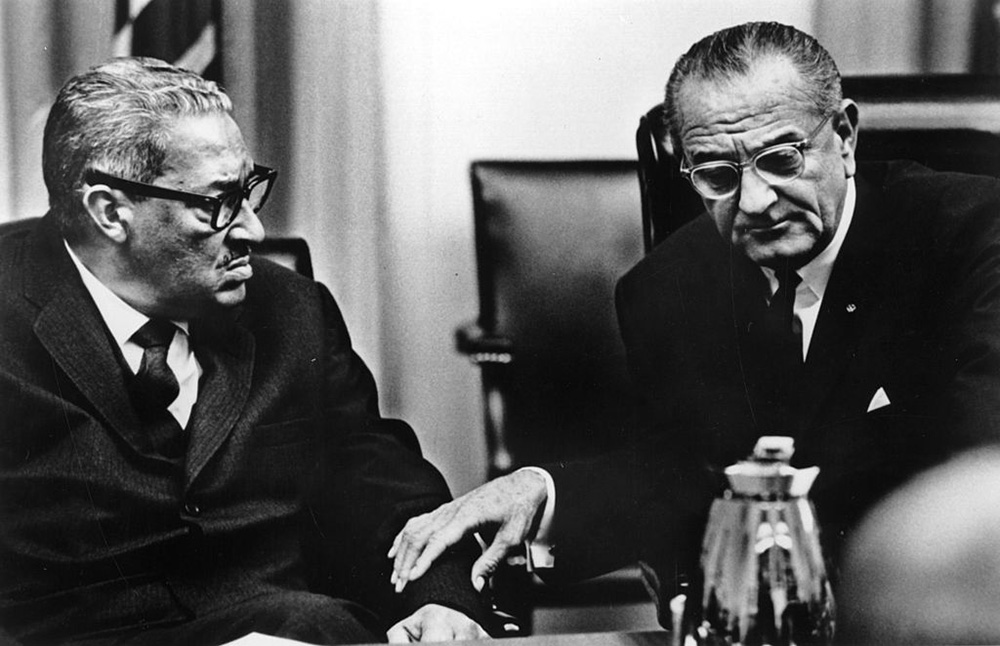The civil-rights hero saw later black leaders as ‘a carnival, a distraction,’ says a biographer.
One of the final scenes in “Marshall,” a new film about the early legal career of civil rights superstar Thurgood Marshall, shows the future Supreme Court justice in a train station in Mississippi. It’s 1941—peak Jim Crow —and a large “Whites Only” sign hangs above a water fountain beside him.
Marshall ignores the sign, takes a paper cup from the dispenser, and draws water from the fountain. An elderly black gentleman quietly watches him, in seeming awe of this defiant act. The two men exchange glances but no words as Marshall exits the station, yet his message to the older man is clear: Don’t be afraid.
The cultural critic James Bowman has remarked that movie history is history for suckers, and that’s often the case. But “Marshall” gets a lot of the history right, even as it fudges details of the sensational trial at the center of the movie, which involves a black man who is accused of raping and attempting to murder a wealthy white woman in Connecticut. Marshall is a young lawyer for the NAACP who traipses the country representing black defendants the organization believes were unjustly accused out of racial prejudice. The movie is, above all else, a wondrous glimpse back at how a previous generation of black leaders dutifully went about the task of advancing the race and making America more just.
Read the entire piece here at The Wall Street Journal
______________________
Jason L. Riley is a senior fellow at the Manhattan Institute, a columnist at The Wall Street Journal, and a Fox News commentator.
This piece originally appeared in The Wall Street Journal
